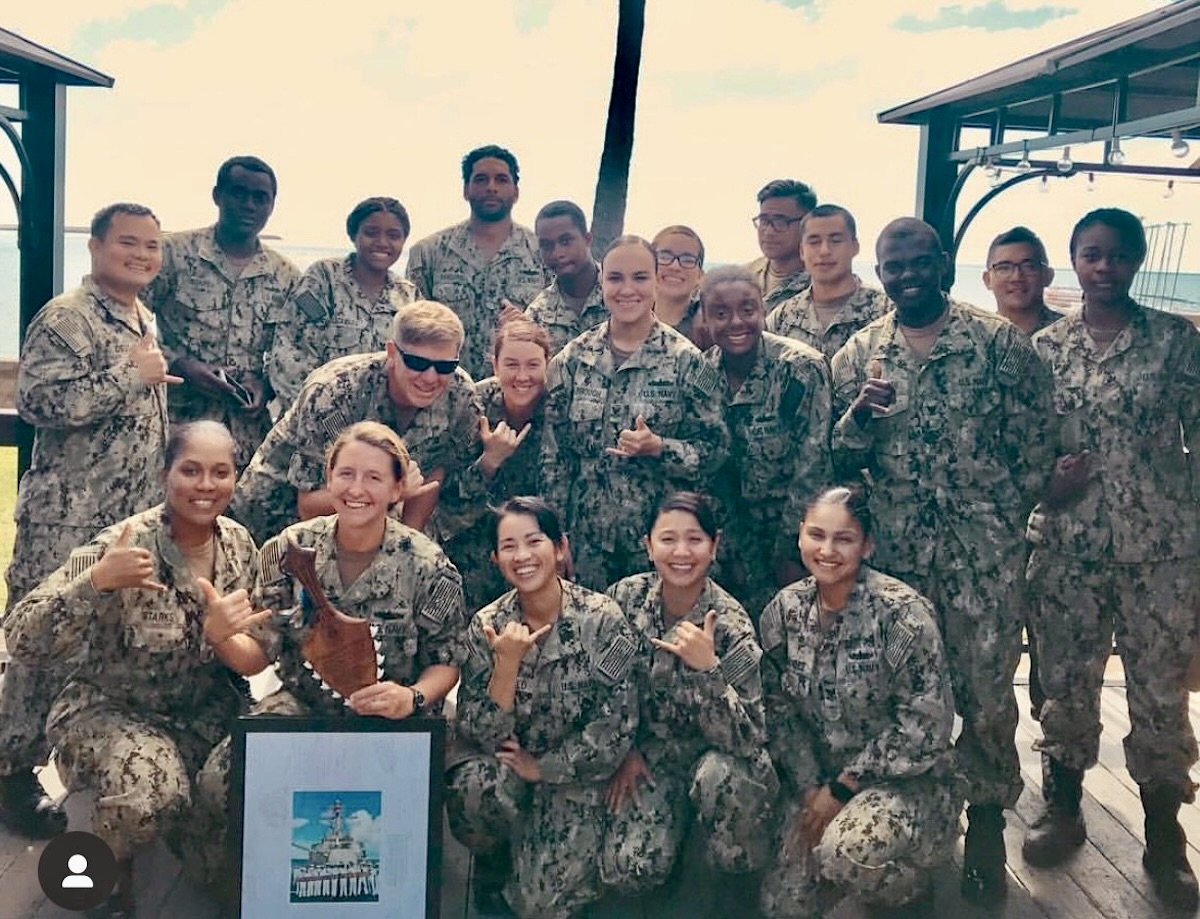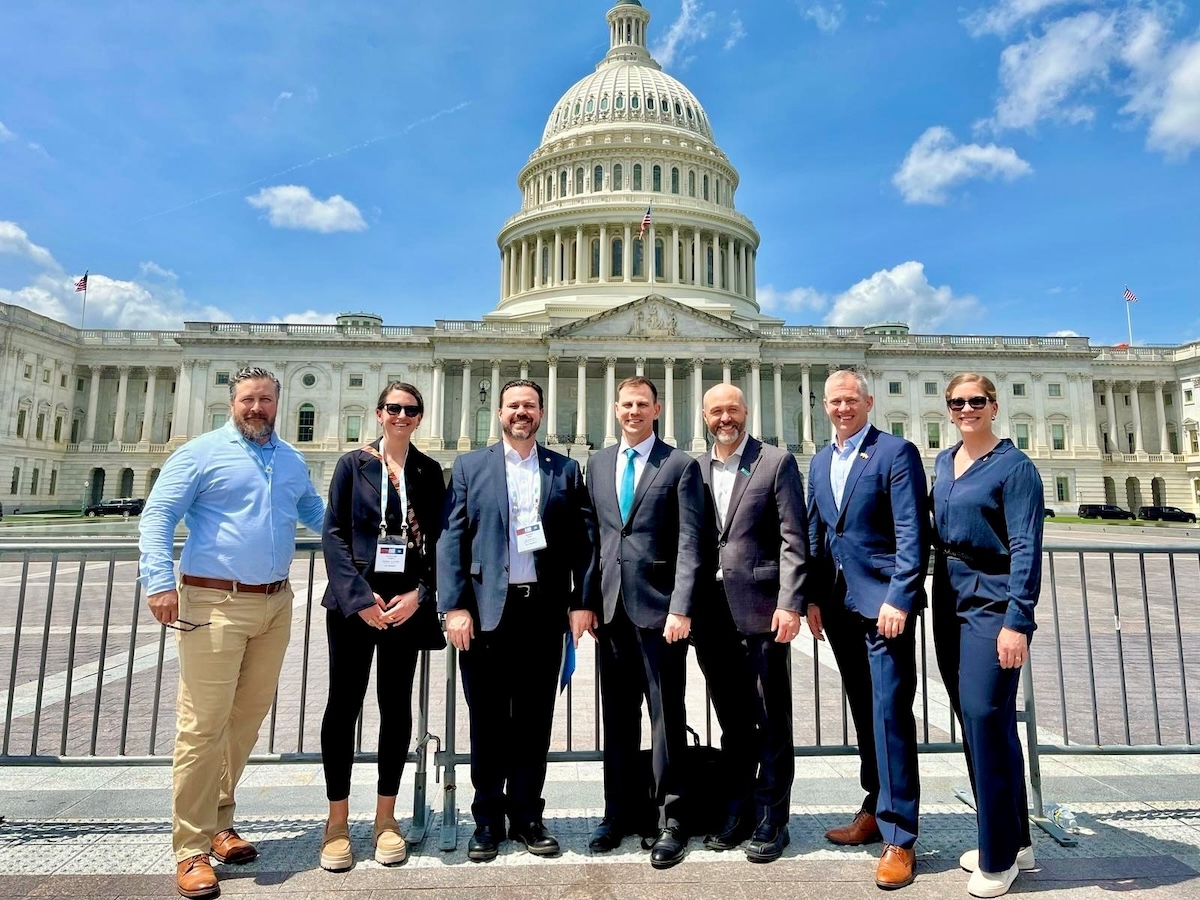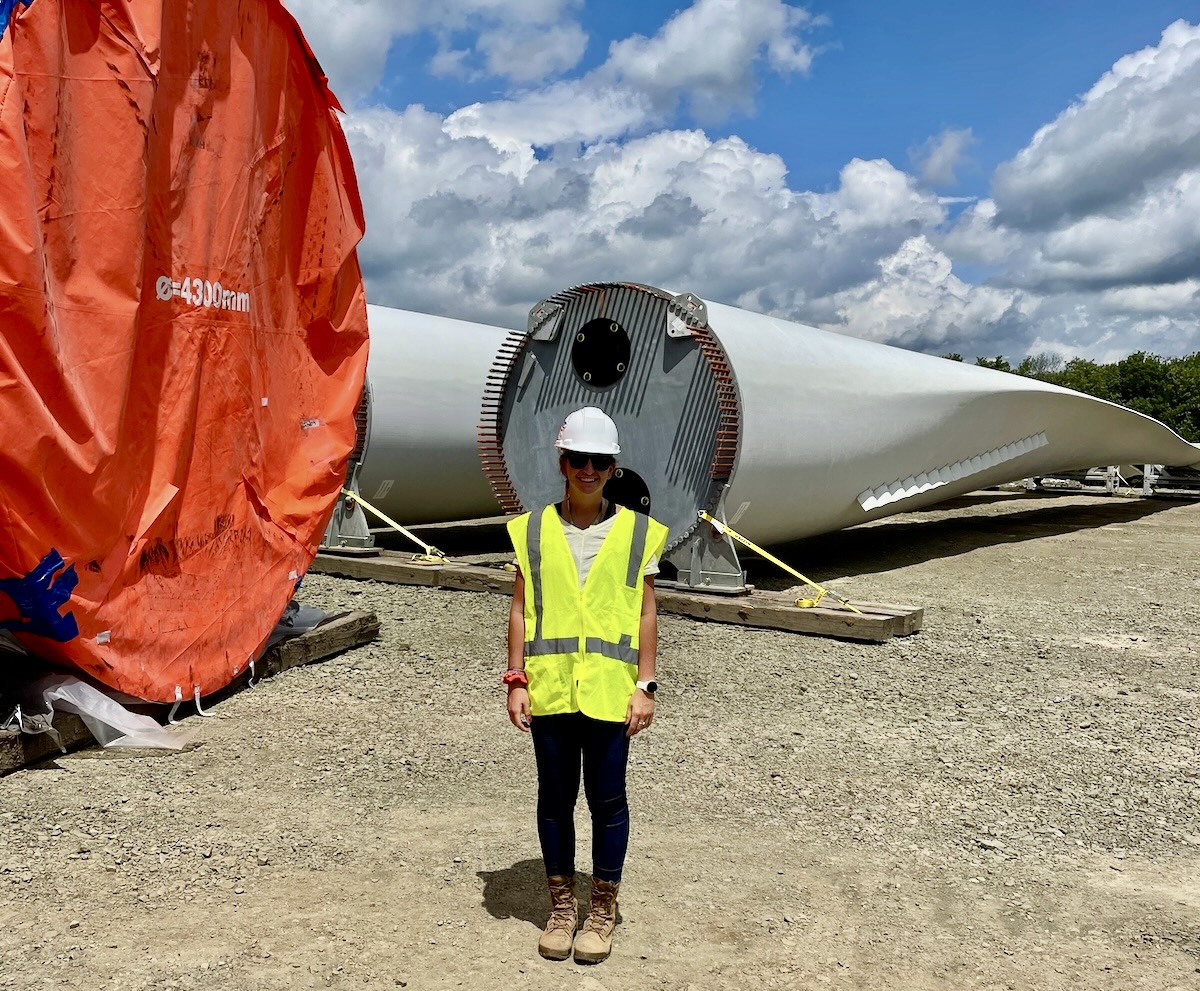Give Jackie Chimiak an unprecedented challenge and she’ll find a way to meet it.
It’s a talent honed over seven years as an officer in the U.S. Navy, where her duties included managing global logistics for underseas special operations teams. Coming up with creative solutions — as she calls it, “getting to yes” — was essential for the covert work of transporting wetsuits, food, and other critical supplies to Navy SEALs in remote locations. It’s a gift that serves her well in her post-military career at GE Vernova, where she works as an Onshore Wind commercial sales leader in the Repower and Services business.
“With customers, you’re not just selling a product, you’re really exploring what their challenges are,” says the Schenectady, New York–based veteran. “How do you craft a solution that’s going to work?”
Sometimes she’s helping a utility, independent power producer, or farmer expand renewable energy production with new wind turbines. Often she’s working with them on a Repower project — replacing the drivetrains, rotors, and other components on aging wind turbines with upgraded technologies to extend life, boost energy production, and improve turbine availability.
“It goes beyond a component swap-out,” Chimiak explains. “We aim to get another 10 or 20 years out of a turbine, depending on the product.” GE Vernova has repowered more than 6,000 wind turbines in the U.S. since 2017, when the program started. This amounts to over 2.5 gigawatts of additional production capacity added to the grid with existing infrastructure. And by prolonging the life of existing equipment, Repower programs minimize the use of raw materials and energy that would be needed to build new turbines. It’s a win for customers and a win for the circular economy.

“I love being at the tip of the spear in an organization, the boots on the ground,” initiating relationships that last for years, she says. “I came from the military, being very strategic and wanting to serve mission and community.” It’s a trait that translates perfectly to her work today.
Writing Her Own Playbook
Chimiak studied oceanography and graduated from the U.S. Naval Academy as an officer in 2014. She was looking for a variety of new experiences and a chance to travel the world, and the Navy delivered.
Based out of Hawaii for majority of her Navy career, she logged more than 400 days underway on deployment on a ballistic missile defense destroyer as the assistant supply officer, followed by supporting a special operations team as their logistics officer. But in 2021, not ready to settle into a military leadership career track, she began exploring professional positions on the civilian side.
“I was in my late 20s and I still wanted to be creative, to keep problem-solving and learning,” she says. Finding an industry that aligned with her values was important, too. When she learned about GE Vernova’s Junior Officer Leadership Program (JOLP), a two-year rotational training program for officers transitioning from the military to civilian careers, she dove right in.

JOLP gave Chimiak the chance to explore several areas of the business. To her surprise, it wasn’t logistics or operations but commercial sales where she felt most at home. “It reminded me of what I did in the Navy, with special operations,” she says. “The work is never black-and-white, and you don’t have a playbook in front of you.”
Finding the optimal way to structure a renewable energy project in a world of evolving technologies, regulations, and tax guidelines keeps Chimiak on her toes. “There’s a lot of opportunity,” she says. “We just have to work together on finding solutions.”
Saluting a Secure, Sustainable Energy Future
Veterans make up a larger-than-average percentage of the national wind energy workforce — and nearly 20% of the workforce at GE Vernova’s Advanced Manufacturing Factory in Pensacola, Florida, a key supplier of domestic turbine and repower technology. This makes perfect sense to Chimiak. A structured organization that emphasizes teamwork, problem-solving, and skills acquisition can feel especially welcoming to people coming out of the military, she says. Many also embrace the company’s larger goal of solving the “energy trilemma” by working toward a secure, affordable, reliable national energy strategy.
“We joined the military for a bigger purpose than self,” she says. “Working in renewables and advocating for them has been like a second mission.”
Through her work with Project Vanguard, a group that helps veterans find impactful careers in the energy industry, Chimiak is encouraging others to explore career opportunities at GE Vernova. She’s active in the company’s Veterans Network, an employee resource group now 1,200 members strong. And though this year has been particularly busy — this fall she’s finishing her MBA online through the University of North Carolina — she still finds time to advocate for wind power and renewable energy.
“Energy is like food and water, an essential, and it’s becoming even more essential” as demand increases, she recently told a group of Congress members at an event in Washington. “There are a lot of veterans in the industry right now, and we’re trying to get as many electrons on the grid as we can. Wind is one way to do it.”

Chimiak looks forward to tackling more challenges head-on, to “get to yes” on a daily basis. “The big thing that brought me to GE Vernova was opportunity,” Chimiak says. “I’ve only been here for four years, but I see people who have been here for 20 or 30, and they’ve moved around from sourcing to commercial or engineering.”
“The more experiences you give folks, the more tools you’re giving them for their toolkit,” she says, and that’s important when what we’re doing is so critical. “We’re helping to solve the whole energy trilemma.”
